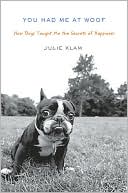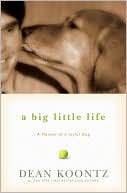How to Raise a Puppy You Can Live With
Search in google:
- 8 catagory development analysis test- keys to housebreaking without a hitch- common puppy personality types and how to deal with them- gentle, effective methods of discipline-One of the most widely recommended books for puppy buyers. Breeders also treasure the valuable information on canine development during the first seven weeks of life. Veterinary Practice The book makes it crystal clear how to communicate with the puppy, what kinds of things to do when training, and how to give verbal commands.
AcknowledgmentsIntroduction 1- Choosing Your Puppy selecting based on breed characteristics * choosing the right puppy 2- Environment shapes behavior * the breeder s role is foremost 3- The First Three Months the developmental periods * the neonatal period * the transitional period * the socialization period 4- The Breeder s Responsibility exposure to mild stress * environmental enrichment 5- Puppy Goes to a New Home preparations * age of the puppy * the first day * first night alone * first visit to a veterinarian * house-training * using crates and kennels * the importance of play * puppies and older dogs 6- Socialization Continues prepare your eight- to sixteen-week-old puppy for the future * stimulate those neurons * teach eye contact * socialize your puppy * introduce the puppy to pretraining activities * important basics when teaching puppies 7- Domesticating Your Puppy shaping behavior * the bonding process * discipline * evaluating the different disciplines * puppies will be puppies 8- Development from Three to Six Months dominance and submission * the avoidance period * teething * the leadership concept * the pack structure * the family pack * conclusion 9- The Importance of Personality individual characteristics * the trainer s personality 10- Dog Signals Using Body Language calming signals * using calming signals * warning signals * conclusion 11- Behavioral Problems why is my puppy acting this way? * guarding the food dish * jumping out of reach * separation distress * digging * chewing * barking * jumping up * mouthiness and biting * the aggressive puppy * find creative solutions 12- The Rewards of Puppy Training communicating with your puppy * teaching your puppy to learn * teaching basic tasks * clicker training * then versus now 13- The Second Six Months more exercise, less freedom * use the basic commands to control behavior * behavioral traits * communication * sexual maturity * the Canine Good Citizen Test * don t worry—have fun! AfterwordAppendix—Puppy Temperament TestingBibliographyAbout the AuthorsIndex








